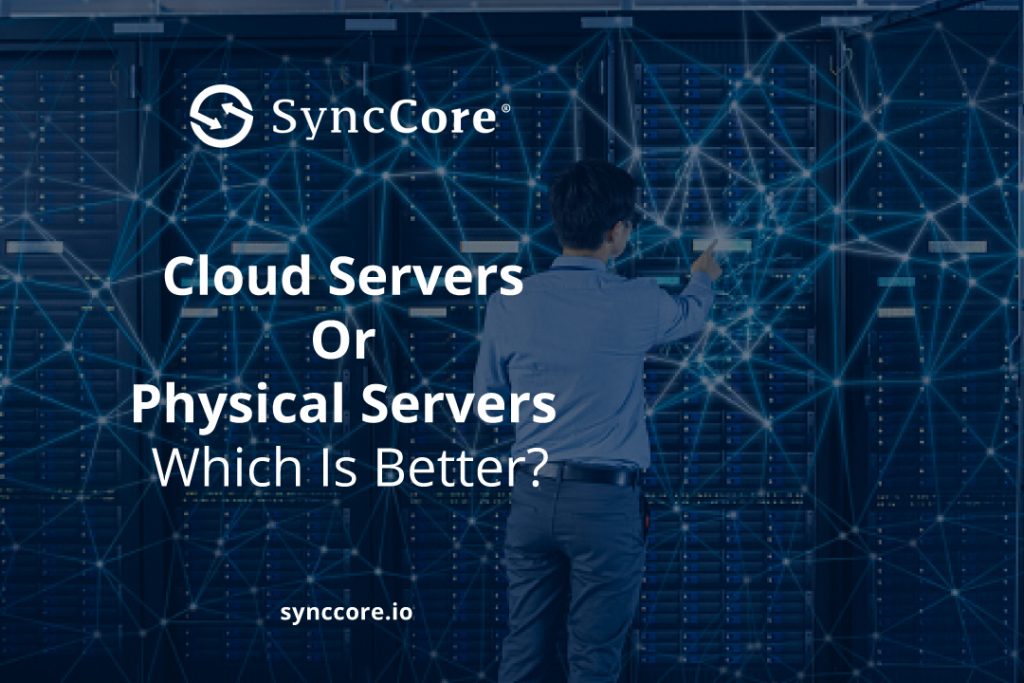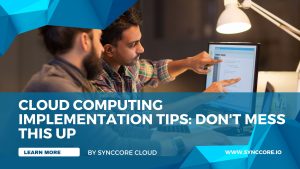
Table of Contents
Cloud Server Or Physical Server:
Before deciding which sort of server is best fitted to your business, it’s best to grasp the definition of every style of circumstance and servers. Let’s begin by seeing what a cloud server and physical server is.
What Is A Cloud Server?
When thinking of cloud servers, we regularly don’t accept them in terms of physical machines or computers, creating up a hosting surroundings. The conception of a cloud server is one that moves past the physical limitations of a conventional workstation/servers setup. Within the new paradigm, shopper information and different accessible resources have unfold across multiple devices in several locations.
These devices has sometimes hidden from our self by “application layer” in operation on those original devices. What you, the client, has access to is usually simply a folder for your files or interface that will seem as one machine with that we can act. Accessing your cloud server is completed either via a “management portal,” that is a terminal interface that offers you access to services on your cloud server, or via FTP (or an identical file transfer program).
What Is A Physical Server?
Although it should appear silly to raise what a physical server is, the conception behind a physical server is essentially totally different from that of a cloud server. Physical servers have dedicated computers specifically purposed for personal use. Not all service suppliers provide dedicated physical servers.
These servers are sometimes hand-built hardware, organized in a particular designed configuration, and purposed to fulfill a selected goal for a business. They’re mighty and customizable in each means. Because the owner, you’ll nearly actually run privileged user access over the complete system and might access, install, and create no matter the computer code you’d like.
Features of Cloud Servers
Both servers have certain specific qualities that build them fitted to exact things. If we investigate cloud servers, we tend to see distinctive traits.
Your information is transferable between physical “parent” servers. Behind the scenes, the cloud service handles the processes that manage wherever your info lives and how it’s used.
The application layer in operation on the cloud server, your information will quickly be touched among existing physical resources that compose the cloud infrastructure. Data redundancy and backups are also simply possible since copies of your information may unfold across multiple physical machines mechanically while not having human intervention. The expandable of resources can even occur quickly via a click.
The advantages of getting your information controlled by an application layer running across multiple servers instead of a dedicated-to-you host area unit are as follows.
A person will manage the number and allocation of resources used at any time.
A customer will verify the precise range of resources they require to purchase These choices are directly controlled from a management interface. Different choices embody the measurability of electronic equipment cores, allotted RAM (memory), and disc space, which will be increased/decreased as required.
These choices may be handled mechanically once events like increases in traffic or load occur.
Because there’s basic virtualization computer code dominant the server that permits an easy association to and utilization of further services that a supplier could provide, external file storage, load equalization, and databases may be accessorized with several straightforward clicks, your servers may be conjointly mechanically organized to use these choices as would like dictated.
Since the virtualized software is a component of a parent server that multiple accounts will share, the danger of over allotted physical resources is exaggerated because of different versions on the parent.
If not self-addressed beforehand, this could produce a poor performance for your application or website.
These “noisy neighbor” issues are inherent in most cloud-based environments and have thought about one of the numerous drawbacks of this infrastructure.
Features of Physical Servers
Physical servers have several qualities that are distinctive to them, as well.
There’s no ” noisy neighbor ” issue because of the physical resources dedicated to this server; there’s no “noisy neighbor” issue.
This selection ensures that you receive the total, undivided use of the hardware. Whether or not this suggests the overall turnout of the network interface card, utilizing all the threads within the mainframe, or using the disks’ complete read/write capabilities, all the hardware is on the market for your utilization.
This configuration is additionally a hefty profit once decisive what proportion instrumentality is required, as is complete visibility into how your applications have been using the hardware and whether it’s achieving the specified results. Physical servers have organized with precise specifications regarding the mainframe sort and speed, disk space, memory, and video choices.
This granular management level permits a custom-designed server to excel in acting specific tasks you have in mind.
These choices conjointly offer extra flexibility of configuration that will not be on the market during a cloud-based atmosphere. Because a server may be dedicated to a singular set of tasks, different hardware choices (e.g., dedicated firewalls, routers, and switches) have on the market, which cannot be on the market during a cloud-based system.
This will increase the degree of customization your atmosphere will use. The single-tenant atmosphere of a physical server is typically the foremost secure style of platform you’ll utilize.
As a result of the restricted variety of admin users and the redoubled permission settings, there’s less worry concerning attacks from “neighboring accounts” during a cloud platform that will share the hardware atmosphere.
This circumstance conjointly precludes any further performance problems for your server. Also, there’s less worry about a couple of malicious users attempting to take advantage of the parent server. Changes to dedicated servers generally need some extended period.
As a result, there are not any further resources to be “unlocked” or enabled for your use throughout a hardware swap; any upgrades involve the physical modifications of the hardware itself. While sure server case designs will accommodate hot-swapping and hot-pluggable parts, specific changes can’t be eluded taking the complete device offline. If your infrastructure needs a selected machine with no backup or significantly on the market partner machine, this might negatively impact your application or website.
Which Server is correct for You?
Associate IT point of view; your business wants vary from project to project. Springing up with a “one-size-fits-all” resolution is sort of not possible. Engineers can assess your priorities and assist you in confirming a way to best utilize your budget on the market for your business wants. You will conclude that a versatile and scalable virtual atmosphere is best, or a zealous server, organized to match your specific wants for max performance, is the proper selection.
In some cases, the mix of cloud and physical servers is also most helpful, providing the most effective of each world. Whereas not associate a complete and complete list, if you are unsure of that atmosphere is that the best for you, there have to be some queries you’ll answer that may facilitate guide your decision-making method for what style of business needs suits you:
Are the tasks need scaling up/down quickly?
A cloud atmosphere is also best. Do you want the same quantity of resources on the market in the least time?
A zealous server is also the most effective choice for you. Are you using CC transactions or handling money data? A zealous server with a HIPAA package might best fit your wants.
To boots, advanced security plans are also utilized to extend the protection of the server.
Is horizontal scaling required for your application? A bank of cloud servers or a server cluster is ideal for your circumstances.
Does your supplier have multiple services you’ll employ? A cloud-based providing might tie into these a lot of simply.
Is a tailor-made server required for the project you are operating on? Dedicated servers provide a versatile choice
Deciding which kind of services is required may be a troublesome call—examining and particularizing all the necessities your project wants before sometimes has the most effective thanks to the proceeding. To boot, speaking with our SyncCore Cloud Solutions team to guide you on the method can assist in understanding your needs and capabilities. It’ll permit you to show intelligence discuss, and assess your future business wants for your distinctive infrastructure..



